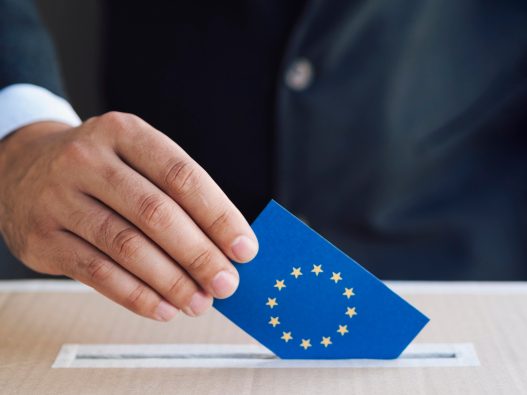
WE TAKE A LOOK AT THE MAIN CANDIDATES FOR THE PRESIDENCY OF THE EUROPEAN COMMISSION
By Asier Martínez Jurio / Aquí Europa
On May 23rd, the debate between the candidates for the presidency of the European Commission for the elections of June 9th will be held. Ursula von der Leyen (EPP), Nicolas Schmidt (S&D), Sandro Gozi (Renew), Terry Reintke (The Greens) and Walter Baier (The Left). The debate will be moderated by Annelies Beck and Martin Rezníček.
Ursula von der Leyen:
The current president of the European Commission, she was elected in 2019 and is notable for being the first woman to achieve this position.
Born in 1958 in Ixelles, Brussels. Her father, Ernst Albrecht, was noted for being one of the first European civil servants, becoming minister-president of the state of Lower Saxony and later director general of the European Commission.
Von der Leyen studied economics, but dropped out to take up medicine. In 2003 she jumped into the world of politics when she was elected as a member of the Lower Saxony Parliament and later Minister of Social Affairs and Health. After moving through various positions, in 2013, Angela Merkel appointed her as Minister of Defense.
The highlight of her career was in 2019, when she was elected President of the European Commission. Von der Leyen has held the position for these past five years and is willing to do so for another five years, which is why she is presenting her candidacy to serve as president of the European Commission again.
Nicolas Schmidt:
The Social Democratic Party’s candidate for the 2024 European elections is Nicolas Schmidt.
He was born in Luxembourg in 1953 and holds a degree in Arts, International Relations and a PhD in Economic Sciences.
His political career began in 2004 as delegate for Foreign Affairs and Immigration. After the elections of June 7, 2009, he was appointed Minister of Labor, Employment and Immigration on July 23, 2009. Elected deputy in the elections of October 20, 2013, he resigned his mandate to become Minister of Labor, Employment and Solidarity again on December 4, 2013. Re-elected as deputy on October 14, 2018, he resigned again to become Luxembourg Commissioner at the European Commission in 2019.
Sandro Gozi:
Born in Italy in 1968. He began his journey in French politics by being elected in 2019 MEP on the French list of La République en Marche. He then joined the office of French Prime Minister Édouard Philippe as project manager.
He is currently secretary general of the European Democratic Party since 2021.
Terry Reintke:
The Green candidate was born in 1987 in Germany and is a graduate in political science.
Reintke began her political career as a member of the German Green Youth from 2008 to 2009, and from 2011 to 2013 she was spokesperson for the Federation of Young European Greens.
Elected to the European Parliament in the 2014 European elections, Reintke served on the Committee on Women’s Rights and Gender Equality, the Committee on Employment and Social Affairs and the Committee on Regional Development during her first term.
After the 2019 elections, Reintke was part of a cross-party working group tasked with drafting the European Parliament’s work program on rule of law, borders and migration. Since then she has been vice-chair of The Greens-European Free Alliance group.
Walter Baier:
Finally, Walter Baier candidate for The Left. Born in 1954 in Vienna, he holds a doctorate in economics and was national chairman of the KPÖ from 1994 to 2006. From 2007 to 2022, he was political coordinator of the European transport network.
In December 2022, he was elected chairman of the Party of the European Left. Since then, he has worked to forge alliances between progressive and democratic forces in order to transform European politics to address social and ecological challenges in favor of the majority.
————
This article was originally published in Aquí Europa, with whose permission we reproduce it.



